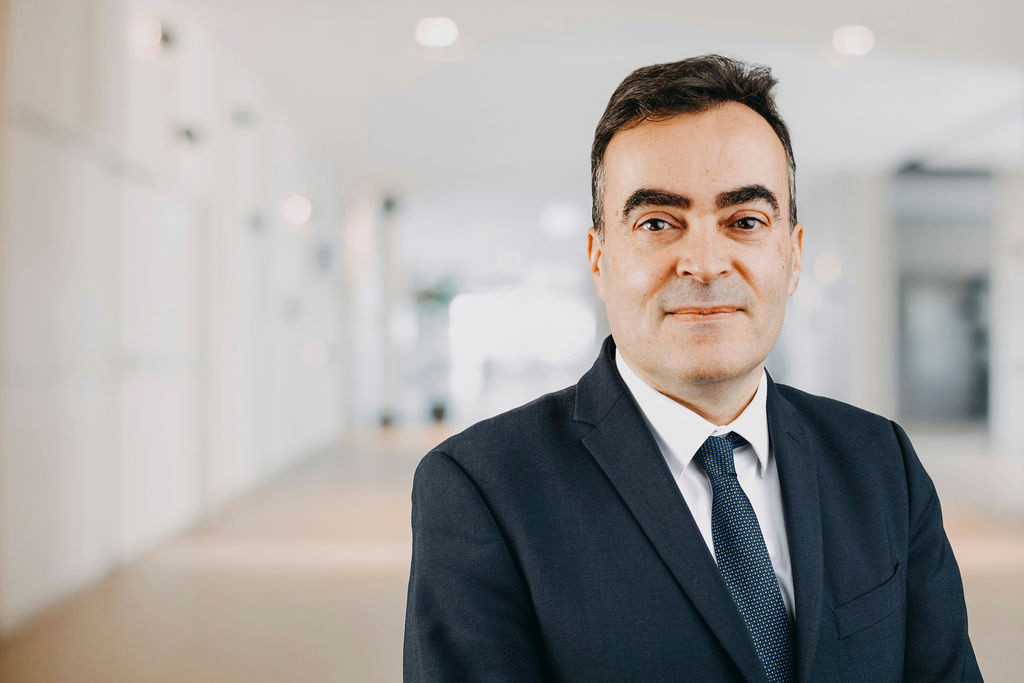There are plenty of different topics in the new AIFMD regulations, said Parain, and many positive elements for the market. The first point concerns delegation agreements. Parain posed some hypothetical questions: “Do we have stress? Do we have any risk to the delegation agreements, meaning Luxembourg funds who are third-party mancos [managing companies] are unable to delegate to the UK or the US?”
This is not the case. “We see this message as very positive. There is, for us, no risk to see additional problems on delegation,” said Parain. “We believe it’s still possible for third party mancos to keep the risk management part and to delegate to third party managers.” These mancos can be outside Europe as well, provided there is a cooperation agreement in place between the different countries.
“For us, it’s crystal clear: it will enable the market to continue the existing, successful business model of Luxembourg,” said Parain.
Substance requirements promote investor protection and fair competition
In the AIFMD rules, there will also be some clarification on substance requirements, which relates to the number of people a company needs to run a business, explained Parain. The , which covers amendments to both the alternative investment fund managers directive and the directive on Ucits (undertakings for the collective investment in transferable securities), says that an alternative investment fund manager or a Ucits would need to employ a minimum of two people to run the business.
“It’s very positive not only for investor protection, but also for fair competition in the market,” he stated. Moreover, this is “in line with the trend of regulators looking for more clarification on what it means to run a business of a third party manco.”
Another point concerns the need for liquidity management tools, said Parain. “To have this discussion on a European level and to clarify that a fund should be protected if there is an event on liquidity, and should have access to some liquidity management tools--for me, it’s very good for investor protection.”
Clarification around the origination of loans
Something that is also positive for business relates to the primary origination of loans. There have been no harmonised regulations on loans in the past, Parain said. “So it’s good to see harmonised rules for fair competition in the market, but also a clear authorisation of loans in a fund format,” he explained. Thanks to a harmonised European framework, “this will enable the fund business to do some loan financing, with fair competition vis-à-vis banks.”
But it’s important not to create a “shadow banking mechanism,” he added, where funds act as banks. “If loans are originated by funds, it means that [the] funds business can do the business of banks.” The AIFMD paper clarified that while “funds can create loans,” there needs to be fair competition with regards to banks. There will be constraints on the origination of loans.
Discussion around depositary passports continues
“We still do not have a depositary passport in Europe,” said Parain. “Depositaries can use branches, but the authorisation is not granted automatically. So you can create branches, but you need to have local authorisation to do deeper business.”
Discussion on this topic continues. “For me, of course, with a depositary passport, it will be more potential business for depositaries, and it will be, of course, easier for depositaries. But we need to be sure that it’s with the appropriate protection for investors,” said Parain. Rules need to be harmonised on the depositary side, including regarding the protection of assets.
Any challenges?
Thus far, everything mentioned about the AIFMD review seems to be pretty positive: increased harmonisation, ensuring investor protection, promoting fair competition in the market. Might there be some challenges related to the new rules?
“Because we are big--we have plenty of people who are part of FundRock--we are less impacted maybe than small players,” said Parain. Small players may see extra rules, like additional reporting, as constraints that could be difficult to manage. This could possibly lead to more consolidation in the market.
Other upcoming regulatory priorities
“There is one part on custom fees in this AIFMD review--it’s a very small part related to reporting. But I believe that the initiative of Esma [European Securities and Markets Authority] on CSSF [Commission de Surveillance du Secteur Financier, Luxembourg’s financial regulator] on can be very important and have an impact on the type of share classes, the types of compartments that asset management companies are running,” said Parain. It’s a review that is meant to ensure funds have adequate reporting and fees.
The CSSF has requested market participants to assess all their portfolios and funds by the end of Q1 2023, noted Gaetan Parchliniak, head of regulatory affairs and compliance officer at FundRock. This initiative will help ensure that the fund business is fair towards investors, maintains fair competition in the market, and could potentially enable new investors to invest in the fund business, added Parain.
ESG regulations
Another big topic for next year concerns ESG, said Parain. It will be important to stabilise and harmonise different approaches to ESG. For instance, funds will have to take decisions regarding sustainability classifications--will they be classified as Article 6, 8 or 9? The year 2022 involved a lot of discussion on methodology, said the FundRock head. In 2023, it will be time for implementation.
“For the time being, data is the huge concern,” stated Parchliniak. Access to data and harmonising data will therefore be key in the future.
Timeline for AIFMD II
The legislative proposal on AIFMD II was published by the European Commission in November 2021. The final text, however, still needs to be negotiated between the Commission, the European Council and the European Parliament. Once agreed upon, countries have 24 months to implement the directive.
